Animals
-
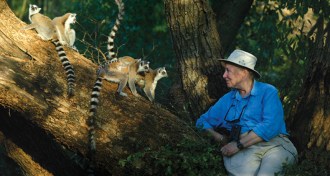 Life
LifeAlison Jolly’s last book chronicles efforts to save lemurs
In ‘Thank You, Madagascar,’ primatologist Alison Jolly, who spent decades studying lemurs, provides an insider’s account of the struggles that conservationists face.
By Erin Wayman -
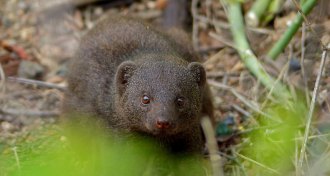 Animals
AnimalsFor dwarf mongooses, handstands aren’t just good fun
Dwarf mongooses may use marks laid down in handstand positions to gather information on rivals, a new study shows.
-
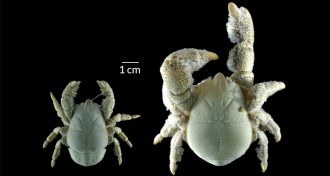 Animals
AnimalsNewly discovered yeti crab swarms around Antarctic hydrothermal vents
A newly discovered species of yeti crab thrives in tough conditions on Antarctic hydrothermal vents.
-
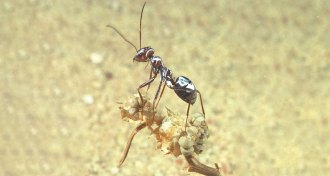 Animals
AnimalsSilver ant hairs reflect sunlight, keeping Sahara dweller cool
The shiny hairs of the Saharan silver ant simultaneously reflect sunlight and permit the release of body heat, keeping the insects just cool enough to scavenge in the extreme summer sun.
By Andrew Grant -
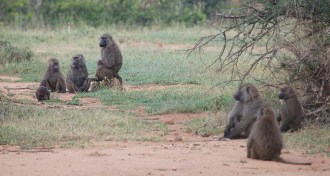 Animals
AnimalsWhen baboons travel, majority rules
GPS study suggests baboons use simple rules to resolve travel disputes without leaders.
By Bruce Bower -
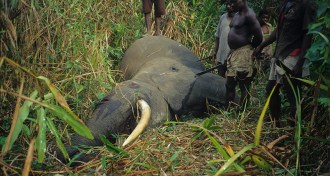 Genetics
GeneticsIvory DNA pinpoints poaching hot spots
Genetic analysis of ivory DNA reveals major poaching hot spots in Africa.
By Meghan Rosen -
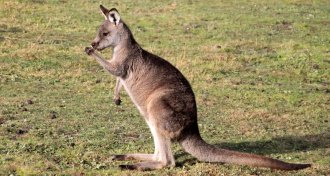 Animals
AnimalsKangaroos are lefties
Scientists find evidence of handedness in marsupials that walk on two, but not four, legs.
-
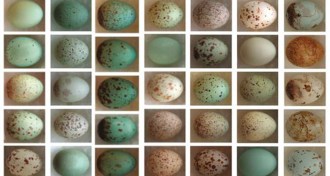 Animals
AnimalsUnpredictable egg scramble throws off parasitic parents
Eggs of some species of warbler and weaver birds appear to have individual signatures, which can help distinguish them from the eggs of parasitic cuckoos.
-
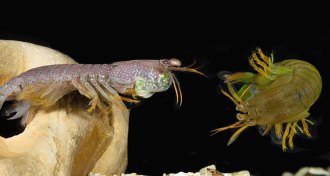 Animals
AnimalsHow mantis shrimps spar
In ritualized combat between deadly mantis shrimp, blows count but don’t kill.
By Susan Milius -
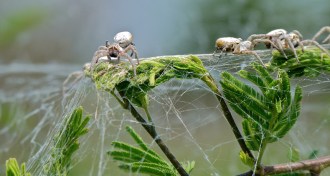 Animals
AnimalsOne bold, misinformed spider slows a colony’s ability to learn
Incorrect ideas prove more dangerous in bold velvet spiders than in shyer ones.
By Susan Milius -
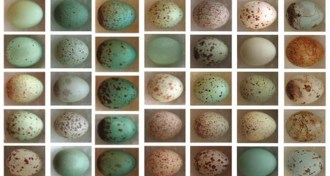 Animals
AnimalsUnpredictable egg scramble throws off parasitic parents
Eggs of some species of warbler and weaver birds appear to have individual signatures, which can help distinguish them from the eggs of parasitic cuckoos.
-
 Animals
AnimalsWith Tasmanian devils gone, possums come down from the trees
In areas where Tasmanian devils have largely disappeared, their prey is becoming more adventuresome, a new study finds.